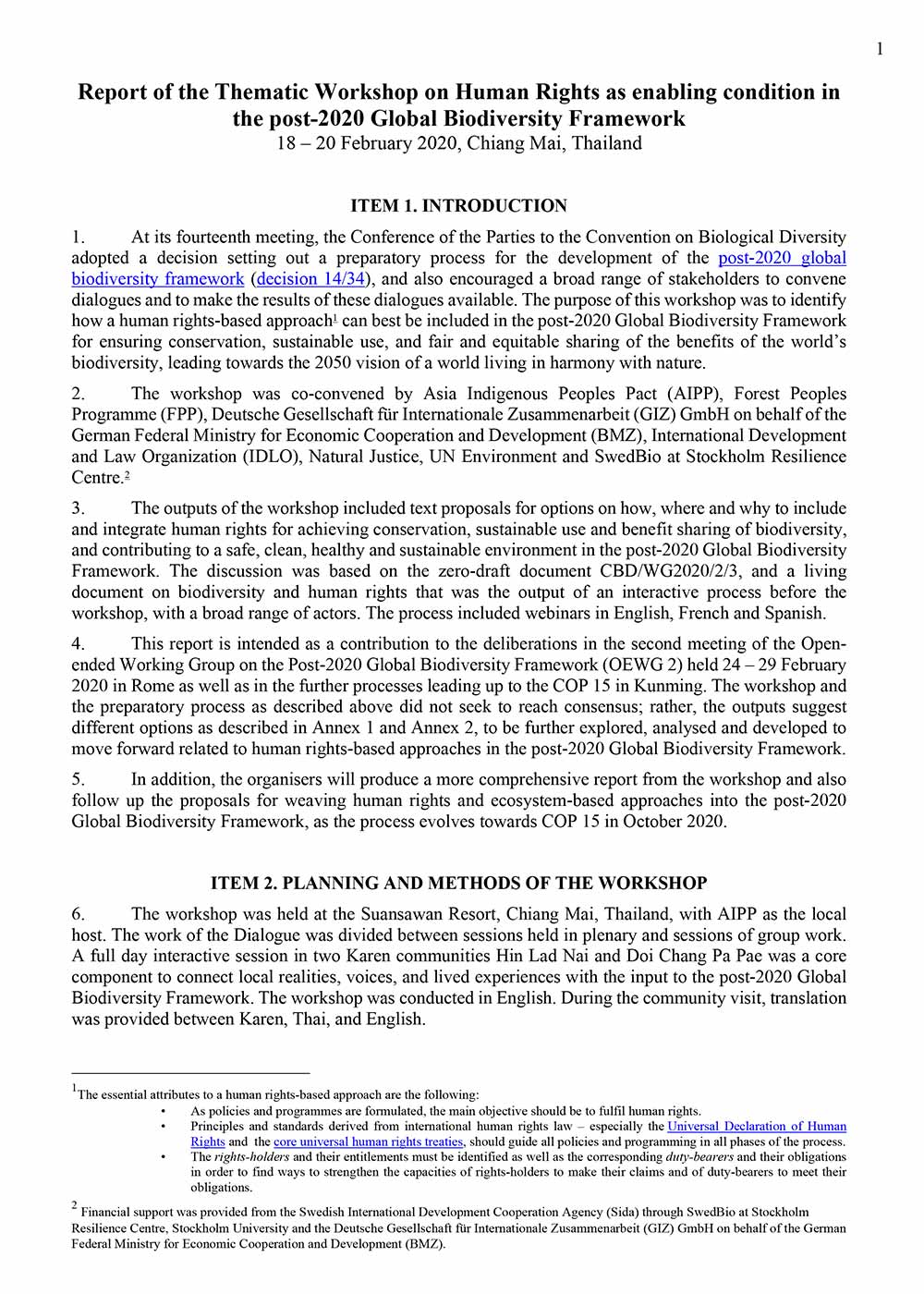In October 2020, the Convention on Biological Diversity will adopt a strategy — the post-2020 Global Biodiversity Framework — to replace the Aichi Targets. The Framework is intended as a step towards meeting the vision of a world ‘living in harmony with nature’ by 2050.
In order to reach that vision, there must be recognition of the interdependency of human rights and a healthy planet. As the Framework is negotiated, Forest Peoples Programme is therefore collaborating with a number of allies (including those listed below) to highlight the importance of human rights for biodiversity stewardship.
This report — developed through a collaborative process that included a major thematic workshop and four webinars — makes concrete suggestions for ways to include human rights in the post-2020 Global Biodiversity Framework. It closely analyses the zero-draft of the Framework, published in January 2020 by the Convention on Biological Diversity, and concludes that:
- The current zero-draft fails to adequately incorporate and protect human rights, including the rights of indigenous peoples and local communities;
- Transformative changes beyond those proposed in the zero-draft are needed to address drivers of biodiversity loss in our economic, social and political systems;
- The worldviews, values, ethics and spiritual beliefs of human cultures — particularly those of indigenous peoples and local communities — should guide our reciprocal relationships with the planet, rather than a utilitarian approach that views nature only in terms of ‘services’ and ‘benefits’;
- Bending the curve of biodiversity loss requires bending the curve of inequality; this means we need inclusive environmental governance, recognition of human rights and fair sharing of the benefits and costs of the sustainable use and care of our world.
The report and associated events were organised with Asia Indigenous Peoples Pact (AIPP), Deutsche Gesellschaft für Internationale Zusammenarbeit (GIZ) GmbH on behalf of the German Federal Ministry for Economic Cooperation and Development (BMZ), International Development and Law Organization (IDLO), Natural Justice, UN Environment and SwedBio at Stockholm Resilience Centre.

 Report of the Thematic Workshop on Human Rights as enabling condition in the post-2020 Global Biodiversity Framework
Report of the Thematic Workshop on Human Rights as enabling condition in the post-2020 Global Biodiversity Framework